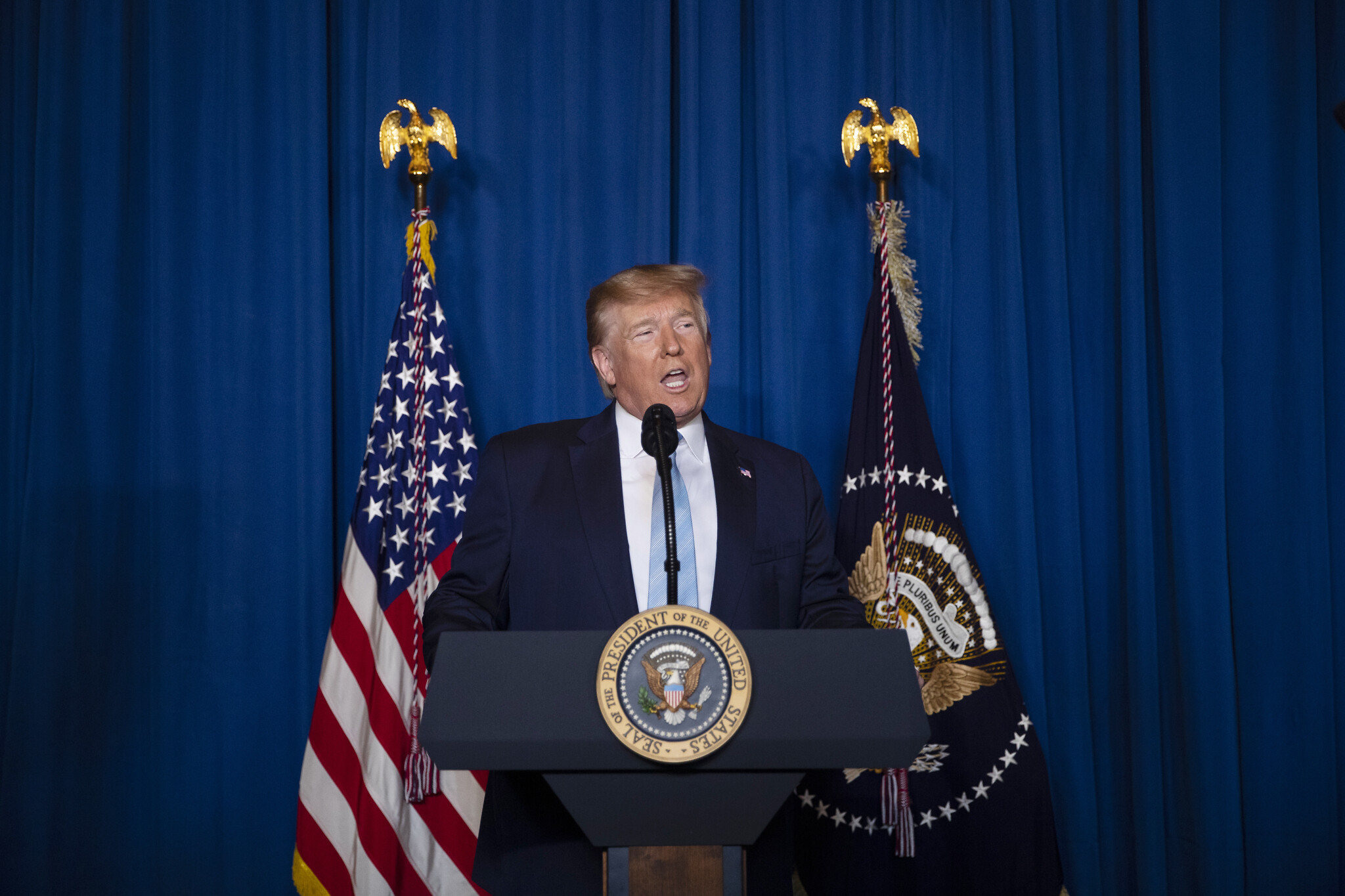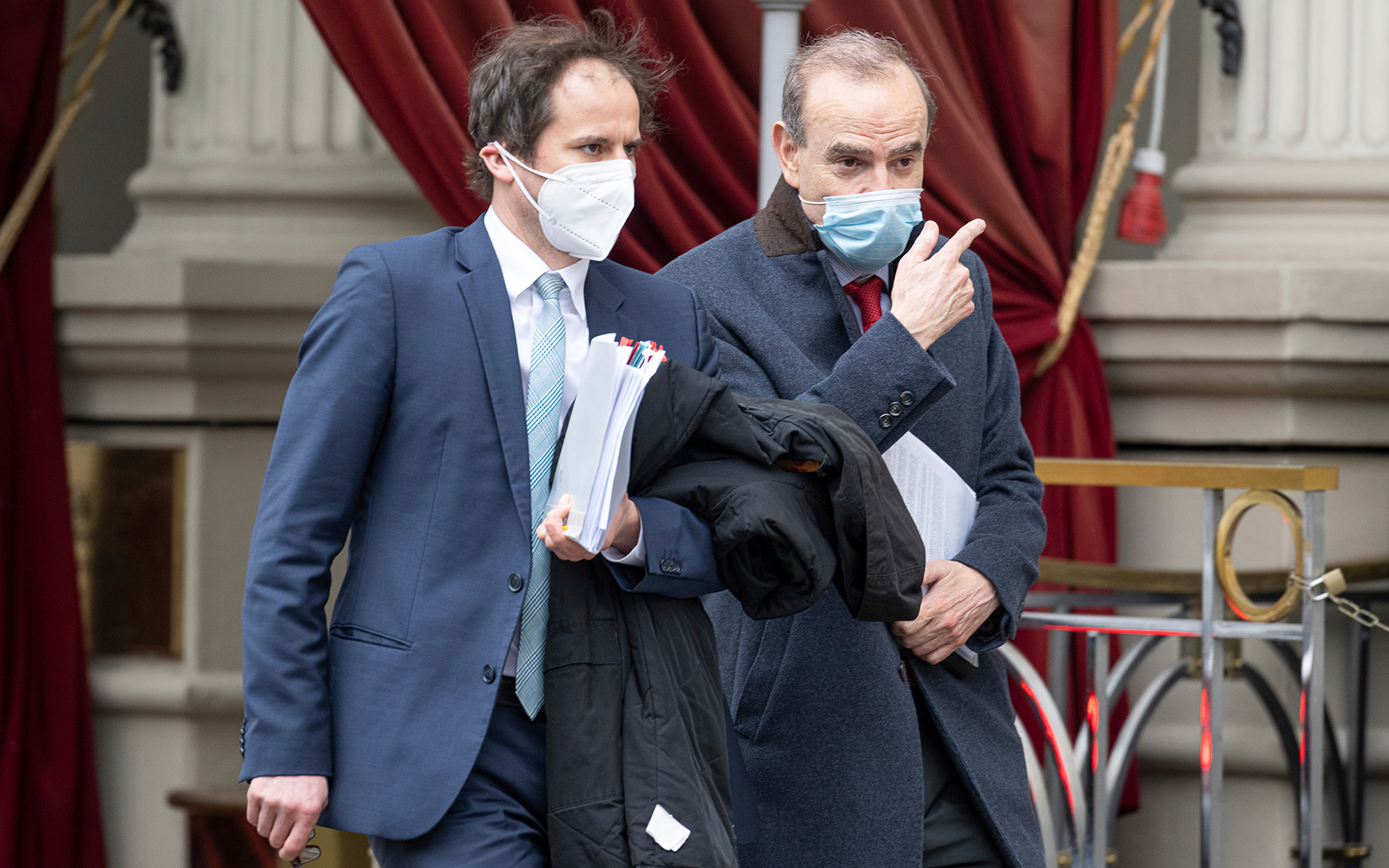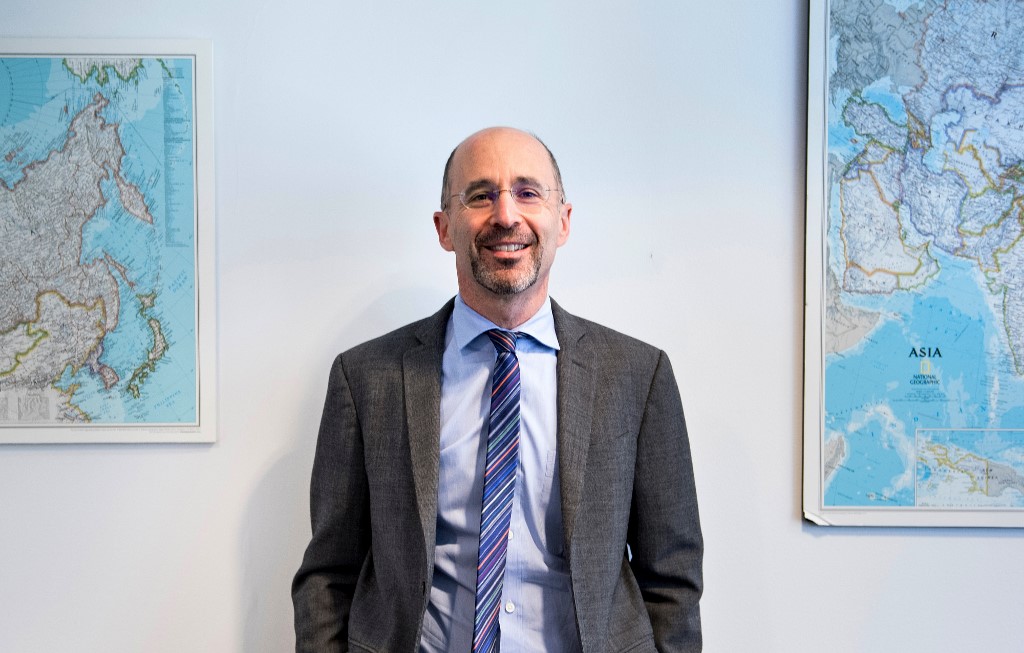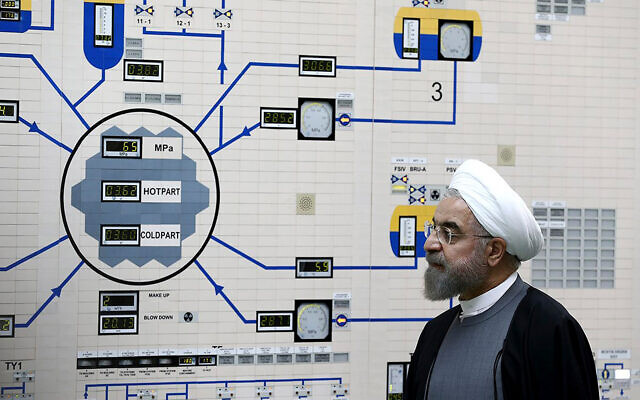Washington and Tehran open indirect discussions on 2015 accord; both sides, and European mediators, issue cautious praise of initial efforts; Iran still insists on sanctions relief
Illustrative: Iranian President Hassan Rouhani visits the Bushehr nuclear power plant just outside of Bushehr, Iran, January 13, 2015. (AP Photo/Iranian Presidency Office, Mohammad Berno, File)
The US, Iran and Russia reacted positively Tuesday to the opening exchanges in a first day of talks in Vienna aimed at rescuing an international agreement on Tehran’s nuclear program.
All sides reported progress on reviving the deal following the Tuesday meeting, which saw the Biden administration and Iran hold indirect talks on the agreement for the first time.
US President Joe Biden has said he is ready to reverse the decision of his predecessor Donald Trump to withdraw from the landmark 2015 agreement, negotiated to ensure that Iran did not develop a military nuclear program, but the White House has insisted that Iran first return to compliance. Tehran demands the US first lift sanctions, putting the sides at a stalemate.
After Moscow gave a positive assessment of the opening of the talks earlier Tuesday, Washington’s reaction a little later was also upbeat. Iran too, described the opening talks as “constructive.”
“I can say that overall, the meeting was constructive,” the head of the Iranian delegation, Abbas Araghchi, said in a video on Iranian broadcaster Irinn.
The United States was not present at those discussions because Iran has refused to meet the US delegation so long as its sanctions against Tehran remain in place. The European Union is acting as an intermediary.
Mikhail Ulyanov, Russia’s Vienna-based envoy to international organizations, said the meeting between those parties still in the deal — Iran, China, Britain, France, Germany and Russia — had been “successful.”
It would take time to restore the agreement, he said.
“The most important thing after today’s meeting of the Joint Commission is that practical work towards achieving this goal has started,” Ulyanov tweeted.
“We do see this as a constructive and certainly welcome step,” US State Department spokesman Ned Price said of the talks.
“It is a potentially useful step as we seek to determine what it is that the Iranians are prepared to do to return to compliance with the stringent limitations under the 2015 deal, and as a result what we might need to do to return to compliance ourselves,” he added.
There is time pressure to make progress on Iran’s side — the country is holding elections in June in which conservatives who are more hostile to the deal are expected to win.
Since Trump pulled the US out of the deal with Iran in 2018, re-imposing sanctions on Tehran, the remaining parties have been struggling to save the agreement, as Iran has gradually stepped up its nuclear activities, including by enriching uranium past the deal’s limits and barring inspectors from accessing sensitive sites.

US President Donald Trump delivers remarks on Iran, at his Mar-a-Lago property, Friday, Jan. 3, 2020, in Palm Beach, Fla. (AP Photo/ Evan Vucci)
Tehran is demanding an end to the crippling sanctions Trump imposed — before which Iran will not meet the US delegates.
Talks between the delegates from the remaining members of the 2015 agreement will continue Wednesday at the luxury hotel in Vienna, a diplomat familiar with the discussions said.
The US delegation is due to meet in a different high-end hotel, also in downtown Vienna, with EU negotiators acting as go-betweens.
At the same time, two expert-level groups — on sanctions-lifting and nuclear issues — are working “to identify concrete measures to be taken by Washington and Tehran” to restore the deal, Ulyanov said.
“We need to make the best of this diplomatic space to bring the JCPOA back on track,” said a tweet from EU diplomat Enrique Mora, the chair of Tuesday’s meeting, referring to the pact by its acronym. The deal, negotiated under former US president Barack Obama, with Biden as his vice president, is formally known as the Joint Comprehensive Plan of Action.
“Our clear goal is to return to full and effective implementation of the agreement by all sides,” Mora said.

Deputy Secretary General and Political Director of the European External Action Service (EEAS), Enrique Mora, right, leaves the Grand Hotel Wien where closed-door nuclear talks with Iran take place in Vienna, Austria, April 6, 2021. (AP Photo/Florian Schroetter)
Ahead of the talks, US special envoy to Iran Rob Malley suggested that the United States could be open to lifting sanctions and returning to the deal, comments welcomed by Iran government spokesman Ali Rabiei.
“We find this position realistic and promising. It could be the start of correcting the bad process that had taken diplomacy to a dead end,” Malley told reporters in Tehran.
Iran confirmed in January it was enriching uranium to 20 percent purity, well beyond the threshold set by the deal.
Araqchi said Tuesday that Iran will not agree to reduce its uranium enrichment from 20 percent — just a short technical step away from weapons-grade levels — in exchange for the release of $1 billion in frozen assets, Reuters reported.
Araqchi ruled out a possible exchange over the funds held in other countries, which have been inaccessible due to American sanctions.
“Lifting US sanctions is the first and the most necessary action for reviving the deal,” Araqchi said, according to Iranian media. “Iran is fully ready to reverse its activities and return to complete implementation of the deal immediately after it is verified sanctions are lifted.”

Protesters with the Lion and Sun flag of the National Council of Resistance of Iran, an Iranian opposition group, near the Grand Hotel in Vienna where diplomats from the EU, China, Russia and Iran are set to hold talks, on April 6, 2021. (Joe Klamar/AFP)
Rabiei reiterated Iran was ready to reverse the steps it had taken as soon as all sanctions imposed during the Trump administration are lifted.
EU spokeswoman Nabila Massrali warned of a “complex process” ahead, stressing that it was too soon to anticipate the outcome.
It would take “joint efforts,” she said, to see “what sanctions can be lifted and how to settle the nuclear issue.”
Kelsey Davenport, director for Non-proliferation Policy at the Arms Control Association think-tank, argued on the eve of the talks for a “bold first step by both sides” to inject “much-needed momentum” into the process.
Washington, for example, could unfreeze Iranian funds held in foreign banks and facilitate humanitarian trade, and Tehran could stop enriching uranium beyond the levels agreed in the 2015 accord, said Davenport.

In this file photo taken on May 7, 2018 Rob Malley, former US negotiator during the Iran nuclear program negotiations and current CEO at the International Crisis Group in Washington, DC. (Brendan Smialowski / AFP)
Also Tuesday, an Iranian -flagged ship in the Red Sea was hit by a limpet mine, the semi-official Tasnim news agency said.
Arabic media reports claimed the ship, Saviz, was an intelligence-gathering vessel linked to Iran’s Islamic Revolutionary Guard Corps. Tanim said Saviz “has been stationed in the Red Sea for the past few years to support Iranian commandos who are sent to escort commercial vessels.”
Al Arabiya claimed Israeli commandos were behind the operation, citing unnamed sources. Israel has not commented on the reported attack.
The shadow war between Israel and Iran has spilled into the sea in recent months, with both sides accusing each other of attacking a number of merchant ships, damaging them with explosives. The vessels in each case were only lightly damaged and there were no injuries in the incidents.
Tensions in the Middle East have heated in recent months as Iran repeatedly violated the terms of the nuclear deal, possibly to increase its leverage ahead of talks with the Biden administration.
Israel is strongly opposed to a return to the nuclear deal in its original form, and has communicated as much to Washington. The sides recently reestablished a bilateral group for cooperating in the effort to prevent Iran from acquiring nuclear arms, agreeing to set up a joint team for sharing intelligence about Iran’s nuclear program.
I’m proud to work at The Times of Israel




Leave a Reply
You must be logged in to post a comment.